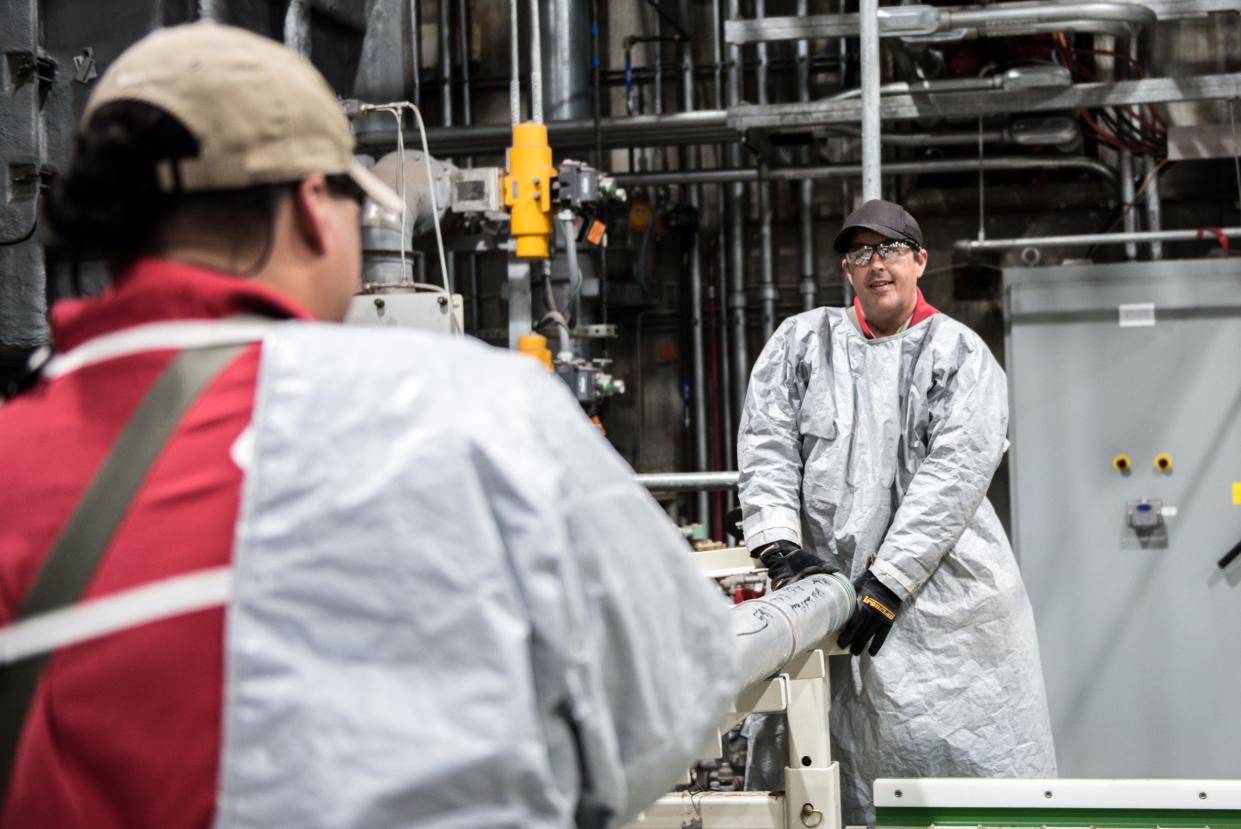Kentucky's safe destruction chemical weapons is a historic milestone for the whole world

The last declared chemical weapons stockpile in the world has been destroyed, and it was completed safely by a Kentucky team.
Since 2019, the workforce at the Blue Grass Chemical Agent-Destruction Pilot Plant has been diligently and methodically destroying the chemical weapons stored at the Blue Grass Army Depot in Richmond, Kentucky. The last rocket warhead containing GB nerve agent was destroyed July 7, 2023.
This is an historic milestone for not only for Richmond, but also for the commonwealth of Kentucky, the United States and the world.
Thousands of workers poured their talents into the construction, testing and operation of the BGCAPP facility. It is their success story.
Cutting-edge technology was used to destroy projectiles containing mustard agent, and projectiles and rockets containing nerve agents GB and VX. Differing chemical agent and weapons configuration necessitated the design, construction and operation of the most complex destruction facility in chemical demilitarization history.
Always laser-focused on safety, the Blue Grass Joint Venture team completed four of the five munition destruction campaigns during the COVID-19 pandemic, a time in which many businesses and industries were closed. Bechtel National, Parsons Corporation and teaming subcontractors Amentum, GP Strategies and Battelle Memorial Institute make up the contractor team. The Program Executive Office, Assembled Chemical Weapons Alternatives is the government agency responsible for overseeing the destruction of the Kentucky stockpile.
The mission was also accomplished by partnering with the Blue Grass Army Depot, Blue Grass Chemical Activity and a host of other U.S. Army oversight organizations.
Fulfilling our Chemical Weapons Convention treaty obligation
Elected officials and members of the Kentucky Chemical Demilitarization Citizens’ Advisory Commission and Chemical Destruction Community Advisory Board, representing the local area, have been instrumental in working alongside us during each phase of our project.
Stakeholders such as the Kentucky Department for Environmental Protection, U.S. Environmental Protection Agency, the Centers for Disease Control and Prevention and the Chemical Stockpile Emergency Preparedness Program have also contributed and will continue to contribute to the successful completion of our mission through the closure phase, as we work to destroy agent-contaminated secondary waste and decontaminate and ultimately demolish the demilitarization facility.
The destruction of these weapons was witnessed by international inspectors from the Organisation for the Prohibition of Chemical Weapons, verifying the United States’ commitment to fulfilling our Chemical Weapons Convention treaty obligation. This is the first time an international body has verified elimination of an entire category of declared weapons of mass destruction.
The commonwealth of Kentucky can take pride in the knowledge that these weapons, safely stored for decades, have now been safely destroyed.
Dr. Candace M. Coyle is the site project manager for the Blue Grass Chemical Agent-Destruction Pilot Plant, one of two chemical weapons destruction facilities of the Department of Defense’s Program Executive Office, Assembled Chemical Weapons Alternatives. Ron Hink is the project manager for the Bechtel Parsons Blue Grass team.
This article originally appeared on Louisville Courier Journal: Kentucky's safe destruction chemical weapons is a historic milestone.

